Some of the excellent books I read this year.A DECENT RIDE, IRVINE WELSH (Vintage, 2015) Shortlisted for the 2015 Bollinger Everyman Wodehouse prize for comic fiction, the Leith laureate's 10th novel gives voice to one Terry 'Juice' Lawson, the outrageous corkscrew-permed taxi driver who first erupted in 2001's tour-de-force coming-of-age tale Glue. Juice's boastful sexual bravado often seems culled from some deranged outtake from those 1970s Confessions Of ... films (and as I was reading his dialogue, the image that most readily formed in my imagination was Robin Askwith in a green shellsuit - aside from the surreal passages directly narrated by his knob.) But bawdy and outrageously overblown descriptions of sex are a familiar staple of Welsh's unapologetically sledgehammer satire - along with dialogue that sizzles like hangover-cure bacon, and genuine pathos. I recall one exuberant karaoke when a full-scale swedge kicked-off during which the TV displaying the lyrics crashed over a table of drinks. The story itself reveals a sensitive core to the black cab lothario, far from the two-dimensional shagger he portrays in Sick Boy's low budget pornos. Crushed as he is by a diagnosis of a heart condition that will render sex potentially fatal, he perseveres (as the Leith motto would fully endorse), helping out the girls working for the sauna-owning gangster he runs errands for, as well as looking out for his half-brother Jonty, an innocent guy with learning difficulties, a big heart and a bigger dick. When Juice also makes the acquaintance of an egotistical American visiting 'Skatlin' in search of golf courses and whisky collectables to plunder, it's difficult to avoid the notion that the inspiration for this brash character is now heading for the White House. As an Edinburgh citizen I relish each Welsh publication with the same excitment I once reserved for new releases by The Clash. Sure there are flaws and The Guardian reviewer hated it, but unlike the aforementioned snippy journalist I recognise most of these characters. My first flat was in Wheatfield Place, two minutes away from 'The Pub With No Name' so I know full well the extent to which said establishment was a hotbed of radgeness. (I recall one exuberant karaoke when a full-scale swedge kicked-off during which the TV displaying the lyrics crashed over a table of drinks.) As with all of Welsh's previous nine novels and shorts anthologies, the key defining factor is the way the prose consistently provides the most joyous celebration of our capital city's vernacular you'll ever see committed to print. HIS BLOODY PROJECT, GRAEME MACRAE BURNET (Contraband, 2015) Crime novels don’t regularly feature on the Man Booker long list, but reviews for Kilmarnock-born Burnet’s psychological thriller have been universally superlative, and rightly so. Set in a West Highlands community in 1869, this story of the brutal murder of three members of a neighbour’s family by a socially awkward young man, Roderick MacRae, is utterly captivating. We know MacRae is guilty because he admits this from the outset. But Burnet challenges the perceptions behind what might appear to be an open and shut case by introducing the journal written by MacRae in his prison cell. This compelling narrative not only blurs the boundaries between fiction and family history (with footnotes relating to archives), it draws us back through the centuries on an enthralling journey to less-enlightened times. Crofters eke out an existence on their absentee laird’s extensive estate, the threat of summary eviction hanging over them, their basic rights no better than the livestock often sharing their roofs. Victoria's Empire might have been sprawling across the world in all its pomp and pageantry, but this community seems as isolated as natives in sunnier climes. Here tenant crofters eke out a grim existence on their absentee laird’s extensive estate, the threat of summary eviction forever hanging over them, their basic rights practically no better than the livestock often sharing their roofs. The reader is soon torn between the human reaction to the scale of the monstrous crime and the extent to which the insanity plea his defence lawyer is arguing for may be justified. This argument is all the more poignant given that the outcome of the trial will mean either life imprisonment or the noose. This dilemma, that MacRae’s life is literally hanging in the balance, keeps the tension taut to the final page. OSTLAND, DAVID THOMAS (Quercus, 2014) Ostland, the 2014 novel by David Thomas, is categorised as a crime thriller. But this seems wholly inadequate for a story that plunges the reader into a nightmarish world of serial killings and mass murder. Based on real-life characters exhaustively researched by Thomas, the narrative features two storylines separated by twenty years. At the outset we are introduced to lawyers Max Kraus and Paula Sieber, hunting Nazi war criminals in early 1960s West Germany. This important task is rendered thankless by the prevailing mood that the less savoury aspects of the nation's past should be consigned to history; especially when a chief suspect happens to be Georg Heuser, a highly-respected senior police officer. Ostland flashes back to 1941 when Heuser is a new recruit to the 'Murder Squad': Berlin detectives tracking down a killer stalking female train passengers during the blackouts. He is introduced to the overall head of security, SS boss Reinhard Heydrich, who urges Heuser and his comrades to catch the cold-blooded murderer. But the Third Reich is rife with twisted ironies. The price of success in rooting out a spree killer in Berlin is promotion to the police forces administering Nazi policy in the conquered Soviet territories. Posted to Minsk, in what is now Belarus, Heuser sees his new role as an opportunity to bring law and order to the lands liberated from Stalin’s regime. A fellow officer shows him around, demonstrating how the German occupation is a force for good. Entering a church, the SS men despair at the way the Bolsheviks have desecrated a Christian place of worship by transforming it into a motor garage, stinking of oil. But if Hauser's initial reasons for joining the police were driven by a sense of justice and protecting the innocent, that idealism is soon stripped away. He witnesses the horrific end result of the racial hatred embedded in the Third Reich. Trainloads of Jews uprooted from the lands of their birth are herded into ghettoes, robbed of their worldly goods - right down to the extraction of gold-filled teeth - then forced to live in abject squalor. Their fate has been sealed in plush boardrooms by Heydrich and his henchmen, who have rubber-stamped the quotas and timescales for their 'liquidation.' Euphemisms abound. The Jews are being ‘resettled,’ the digging of vast pits in forests a prelude to ‘actions.’ Previously a principled upholder of the law, Hauser sinks into the immoral abyss of the 'master race' when he joins the lines of SS firing squads. At times the details are vividly realised, the systematic violence enacted on humans by humans difficult to read. Many of the SS officers, such as the horsewhip-wielding Captain Stark, are brutal sadists who regard their charges as vermin and treat them accordingly. But given the enormity of the barbarism, others struggle to cope with their guilt and can only get through each hellish day fortified with vodka. This is a core aspect of the story: state-sanctioned executioners are given a human face and sometimes a conscience. Heuser's account of the horrific events is relayed in the first person, giving a poignancy - whether he is bemoaning his fellow SS officers competing for their superiors' attentions, like so many backstabbing middle managers in any other corporate organisation, or despairing at his own unraveling moral compass. There will always be far-right imbeciles denying The Holocaust ever happened. One fatal flaw with their argument is that the Nazis, as well as being remorseless killers, were meticulous bureaucrats. They kept exhaustive records of every aspect of their resettlement campaign, from train timetables to the identity papers of the individuals concerned, from itemised lists of looted belongings, to the requisition orders for the vodka required to keep the firing squads anaesthetised. Equally concerning, despite the worldwide revulsion in 1945 when the liberation of the death camps revealed skeletal children in striped pyjamas, despite the nonsensical medical experiments conducted on live human beings, despite the gas chambers and the mounds of corpses, swastikas are still daubed on synagogues and Twitter is populated by deluded white supremacist sociopaths celebrating their 'master race.' In the 1930s and 1940s they wore red and black armbands and got away with murder. Today they are trolls infesting the ugly world beyond your browser's firewall. It takes courage to take on such a powerful and important subject. Thomas's thriller is deeply compelling, but far more harrowing than thrilling. IF YOU LIKED SCHOOL YOU'LL LOVE WORK, IRVINE WELSH (Vintage, 2008) While Welsh’s longer pieces allow him to develop the rich assortment of characters he invariably amasses to bring his stories to life, his bare-knuckle prose is ideally distilled into shorter fiction. Eleven years after his last anthology, Ecstasy, we touch base with ravers coming down in the Nevada desert, bitching diners in a New York restaurant, a Texan biographer who has a macabre encounter with a Miss Arizona whose glamorous sparkle has long-since faded, and an English bar owner ducking and diving among the other ex-pats and smalltime gangsters in the Canaries. There is also a novella set in the Kingdom of Fife, featuring the sexual attraction of an ex-jockey for ‘posh burds’ wearing jodhpurs. The potency of the stories vary, but overall the collection is as smuttily entertaining as you could imagine. LONG TIME DEAD, TONY BLACK (Preface Digital, 2010) Black is a virtuoso exponent of Tartan Noir - Scottish crime fiction delivered with observation as sharp as a machete. Gus Drury, an ex-hack turned PI, is investigating the truth behind a hanging at Edinburgh University. He discovers this was no suicide and digging deeper opens a monstrous can of worms involving sinister secret societies and corrupt cops. The dogged investigator soon finds he is stepping on very dangerous toes. Sometimes he comes to after a savage beating. On other occasions his blackouts arise from the battles with alcohol that have driven deep rifts in his private life. The fact the protagonist is teetering between becoming the next victim while succumbing to liver failure makes his determination to expose the villains after his whisky-soaked blood captivating. Rarely slipping out of fifth gear, Drury's first-person narrative comes across as a hardboiled collision of Raymond Chandler, Quinten Tarantino and inevitably, given the Edinburgh backdrop, Irvine Welsh. The fact the protagonist is teetering between becoming the next victim while succumbing to liver failure makes his determination to expose the villains after his whisky-soaked blood completely captivating. Although this exhilarating read represents Drury's fourth outing (he features in Black's previous novels Paying For It, Gutted andLoss) the novel works perfectly well as a standalone. THE TALE OF SAWNEY BEAN, KEVIN J KENNEDY (a novella) When I downloaded this eBook I was expecting something between The Hills Have Eyes and The Descent, except set around the 15th century. But I was surprised to find that Airdrie horror author Kevin J Kennedy's striking novella was far removed from any gratuitous gorefest. Despite being based on an individual dubbed 'the Ayrshire Cannibal,' the central character here is no bloodthirsty psychopath. Instead the author has weaved an equally sinister narrative by focusing on the unravelling relationship between Bean and the enigmatic girl he first befriends then runs off with, Sarah. What then unfolds is far more heartbreaking than endless descriptions of randoms being pickled. Estranged from civilization, we observe the development of Sawney and Sarah's extended family, how their symbiotic relationship strengthens but ultimately wanes as subsequent children born of incest suffer from genetic defects. We observe the development of Sawney's extended family, how the symbiotic relationship strengthens but ultimately wanes as subsequent children born of incest suffer from genetic defects. Historians will argue whether or not there was ever any truth behind this legend of cave-dwelling cannibals. Kennedy has created a unique and sympathetic version of the story, describing a man's struggle to retain his human spirit as the reluctant chieftain of a dysfunctional clan, who can only watch in despair as his offspring gradually lose their humanity in the darkness. JOCK STEIN: THE DEFINITIVE BIOGRAPHY, Archie Macpherson (Highdown, 2004) Although journalists learned to respect the healthy boundaries Stein maintained around his players, his club and above all, his family, longstanding BBC football commentator Macpherson came closer than most to uncovering the truth behind the myths. His biography is a fascinating study of the man who began his working life hacking coal deep beneath Lanarkshire, then ended up carving his name in history as one of the most successful British football managers ever. As a player, firstly with Albion Rovers, then Welsh side Llanelli Town, and finally Celtic, the club with which he became synonymous, he was never regarded as more than a journeyman until an ankle injury prompted his early retirement. But as he went on to forge a glittering managerial career, he demonstrated a singular vision, determination and ambition, with an uncanny ability to recognise player qualities and forensically analyse the strengths and weaknesses of opponents. His story begins at the peak, in 1967, with Celtic poised to become the first British side to win the European Cup, a feat all the more remarkable given that his entire squad were born within a 30-mile radius of Parkhead. We then rewind to Stein’s Protestant family upbringing in Burnbank; for many the wrong side of the west of Scotland’s insane religious divide for someone with managerial ambitions at Celtic. Initially reserve coach at Parkhead, his young charges included some of the cubs who would later become his Lisbon Lions – Billy McNeill, Bobby Murdoch and John Clark. He went on to manage Dunfermline and Hibernian, before returning to Glasgow's east end as Celtic manager in March 1965. Included is a striking photograph of Stein clambering into the terraces to remonstrate with bigoted singers, a truly astonishing image for any Old Firm manager that is never likely to be replicated. In embracing this role, when the Hoops were struggling in the league, he showed his conviction to confront anyone who would decry a player’s religious persuasion, no matter which side of the Old Firm schism they spat their primordial bile from. (Included among the illustrations is a striking photograph of Stein clambering into the terraces to remonstrate with bigoted singers, a truly astonishing image for any Old Firm manager that is never likely to be replicated.) But his drive for success was absolute, with players becoming all-too-familiar with dressing room meltdowns after poor results. Nor did he ever rest on his laurels, with many of his legendary Lisbon Lions finding their reputations secondary to his ambitions when it came to rebuilding his squad to continue winning trophies.
After serving Celtic from 1965 to 1978 he suffered the ignominy of being offered a position as the club's retail manager when he’d been expecting a shoe-in to a place on the board. He departed to Leeds United for 44 days, before becoming Scotland manager. There are many highs - Lisbon, the embarrassment of silverware his all-conquering teams accumulated,including nine Scottish Championships in a row, total domination of the Old Firm fixtures, further European success. There are also lows - the 1974 European Cup tie where Athletico Madrid players kicked mercurial winger Jinky Johnstone around like a tin can, a near-fatal car crash in 1975, recrimination over star players falling out of favour with him, and ultimately the moment his life was taken at the age of 62 in Wales's Ninian Park after the big man had watched Scotland securing a qualification play-off spot in the 1986 World Cup. As another legendary Scottish manager from a mining community, Liverpool's Bob Shankly, remarked after that heady night in Portugal in 1967, ‘John, you’re immortal now.’ |
|
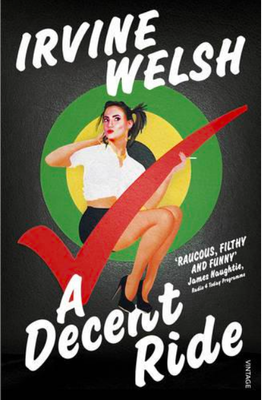
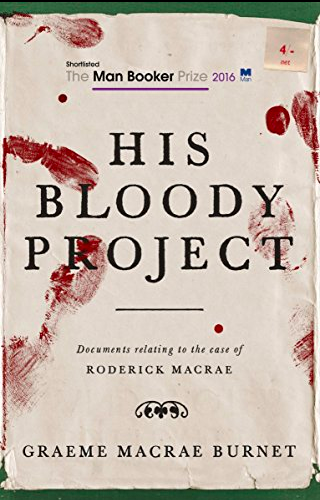
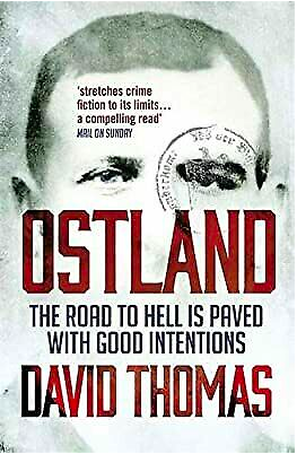
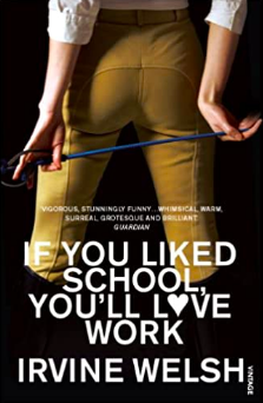
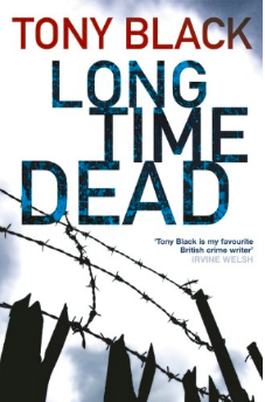
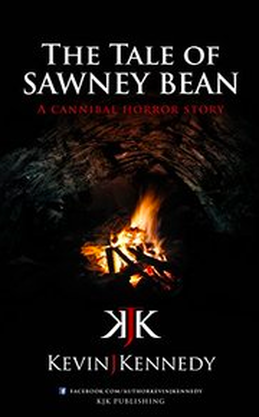
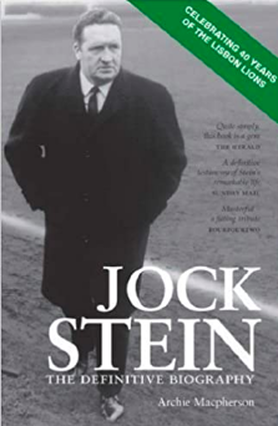
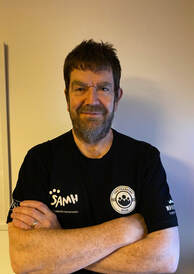
 RSS Feed
RSS Feed
